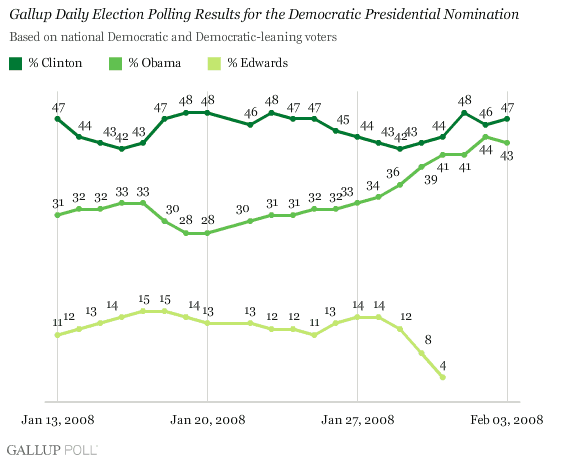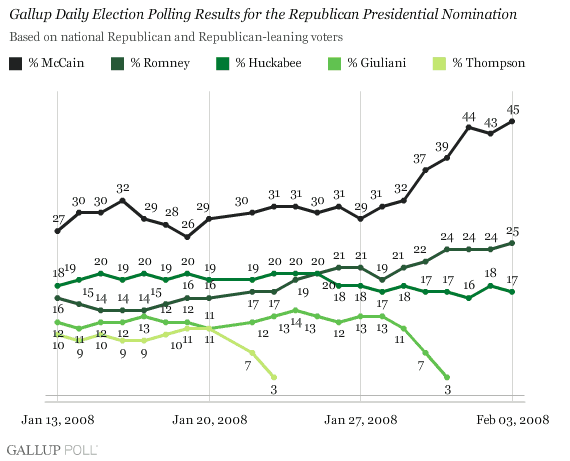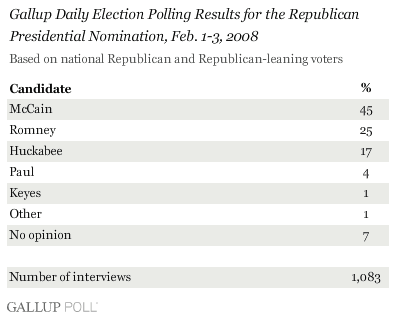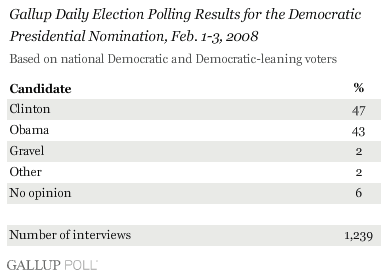PRINCETON, NJ -- On the eve of the Super Tuesday election, Hillary Clinton and Barack Obama remain closely matched in national Democratic voters' nomination preferences. Gallup Poll Daily tracking data from Feb. 1-3 show Hillary Clinton the top choice of 47% of Democratic voters and Barack Obama the preferred nominee of 43%.

An analysis of the preferences of eligible Democratic primary voters in the 23 states holding Democratic primaries or caucuses Tuesday finds results similar to the overall national results. Forty-nine percent of Democrats and (where eligible to participate) Democratic-leaning independents in Super Tuesday states favor Clinton for the nomination, while 44% choose Obama. This analysis is based on tracking data from Jan. 30-Feb. 3, all collected since John Edwards suspended his campaign.
The daily Democratic figures continue to suggest that the Democratic race is still quite fluid as voters in many states come to final voting decisions in the next day and a half.
John McCain continues to hold a commanding lead in the Republican race, leading Mitt Romney 45% to 25% among Republican voters in the Feb. 1-3 national data. McCain's lead has been 19 or 20 percentage points higher in each of the past three daily releases, and it is just as solid (43% to 25%) among Republicans and Republican-leaning independents eligible to vote in tomorrow's GOP primaries and caucuses. -- Jeff Jones



Methodology: Gallup is interviewing 1,000 U.S. adults nationwide each day during 2008. The results reported here are based on combined data from Feb. 1-3, 2008, including interviews with 1,083 Republican and Republican-leaning voters and 1,239 Democratic and Democratic-leaning voters. For results based on these samples, the maximum margin of sampling error is ±3 percentage points. In addition to sampling error, question wording and practical difficulties in conducting surveys can introduce error or bias into the findings of public opinion polls.
For results based on the 949 Democrats and Democratic-leaning independents voters who are eligible to vote in the Feb.5 Democratic presidential primaries and caucuses, the maximum margin of sampling error is ±4 percentage points. These results are based on aggregated tracking data from Jan. 30-Feb. 3.
For results based on the 697 Republicans and Republican-leaning independents voters who are eligible to vote in the Feb.5 Republican presidential primaries and caucuses, the maximum margin of sampling error is ±4 percentage points. These results are based on aggregated tracking data from Jan. 30-Feb. 3.
